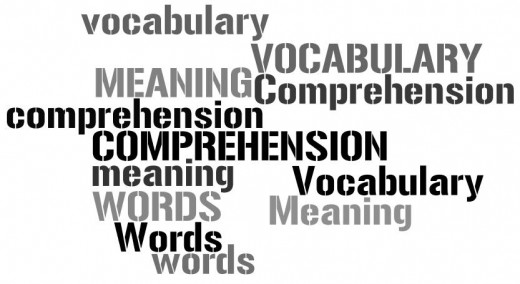How to Quickly Improve Your Vocabulary for Standardized Exams like GRE
Initial stages of GRE preparation
Improving your vocabulary is key to success in Verbal part of GRE Exam. Its an easy and interesting task provided you take the right approach to do it. I will give you some specific tips here to help with your Vocab which I have learnt from my experience. First, I will tell you how to begin with a fixed schedule in mind. Then we will see what are the different methods available to learn words and how best utilize them. And finally a book keeping method which I found really helpful and will help you to keep track of the words you have learnt and revise them.
So, How do I start?
So you have a minor plan about how to prepare for GRE. But puzzled about how to mug up those humongous list of words by Barron. There are many ways out there in internet( I bet everybody said flash cards as you googled ), but nothing is really working. You need a shorter and quicker method specifically suited for exams like GRE.
Ok, other things apart, lets focus on how to learn words to improve your Vocab in a short period of time. The Very first thing you need to identify is how much time you have to prepare. Your plan will depend on it. Assuming you have at least 2 months to prepare, devote first month to learn first 1000 new words. Always begin from a list of words and use that as your base word list. I will suggest you a list to begin with. But I don't claim that is the best. Explore and find one out on your own if you don't find this one effective. Start with a mixed list of 1000 words(non alphabetic order)
I picked this because the arrangement of the words is suited for a disordered mind like mine. Somehow it gets registered there probably due to a physiological approach used while preparing it.
Now, there are several advantages in focusing in improving your vocabulary during the first month of your GRE preparation rather than putting it off. Though there are around 4600 words in the Barron's list, only about 1500 of them come frequently in exam - say, 95% of times. Out of which first 1000 amounts to 70%. If you put a little extra effort in learning new words during first month, you will start looking at the sentence equivalence and sentence completion questions with a new found wisdom. It will seem easier and your further Verbal learning will be quite easy.

Different Methods to learn new words
There are several ways to learn a new word. I have used plenty, starting from mnemonics to reciting the word and meaning 20 times as we do in kindergarten days(yes, seriously). My experience is that different approaches works for diffident words. So literally you may have to use a "Mixed approach". In the list given, first three is usually quicker. Sorting is based on how quick a method is. The "quickest" method from my experience comes first.
A combination of methods i describe here along with the book keeping mechanism mentioned later in this post will help you achieve your target of 1000 words in the first month of GRE preparation. Mostly even more than that. I learnt around 1600 words.
- Mnemonics - This comes first because this is the quickest (but not the best) and most retaining method. And works quite well for a large majority of words. Using mnemonics will help you associate the words to some other picture in your mind(which should be very contrasting - remember, the word CONTRAST is the key).
Use Mnemonic dictionary to look up mnemonics for the words. - Root words - Root words is a powerful way to learn and recollect words though this approach will not work for many words. The concept and examples are explained clear enough here.
eg, Salubrious, Salutary both came from a root word salus which means health. - Association(Contrast) - When you get a word, try to visualize the meaning in a very contrasting situation. As I have told earlier, contrast is the key here too. For eg, if you want to learn the word "Salubrious" - recollect as it as a SALLU (Salman khan) with a lot of muscles(which implies healthy).
- Use the word in sentence in a very suitable context. You can type the word in Google News to get some good examples of usage. It may or may not stick to your mind for long term so I have given this method lesser priority than first three.
- Synonym based word clouds - While learning, group the words by similar meaning in some excel sheet. Revise and recollect it together. Be sure to do it on your own.
- Testing your existing knowledge with your friends. If you have someone to prepare for GRE with, then when ever you are together, ask some words, explain some meanings and talk about some root words. It worked for me after all.
- Association(Similarity) - Associate the word with a picture or a sound.
- Vocabulary flash cards - everyone talks about this method. It works, but a bit slower.
- Write down the word, meaning and a usage. - May be more than one time. Yeah, I know it is time consuming. But it works.
- Read Word Power Made easy if you have time.
- Theme based word lists - There are several theme based word lists available in web. Find one here.
- Read, read and read - Out of different ways, this method comes among the last in the priority of a GRE student, but trust me, this is the best available out there if you want to learn the real meaning and retain forever. But one the other hand, it is incredibly slow. You won't be able to achieve a target of 1000 words first month with this method alone. Read all the English material that you can get. Good books, The Hindu editorial(if you are in India), WSJ etc would help - If you are interested in a thought provoking book, try The fountainhead by Ayn Rand. :-)
Now you will have to take a mixed approach of all these methods when you learn from the list I have mentioned earlier. I will keep on adding to this list as it comes up in my mind.
The Book Keeping part of it
Remember that learning is not enough. You may still forget irrespective of the method you used. So book keeping is important. I will suggest you a method that works exquisitely for me. Its pretty simple.
- Create an excel sheet with two sheets titled 1.) "Learnt" and 2) "Not yet learnt" or a suitable caption you like.
- As you learn a new word using any of the methods suggested above, add the word to 2. "Not yet learnt" list. Every day keep a target of number of words you learn. Suppose its X. There will be X words in the not yet learnt list on the first day.
- Every day, go through "Not yet learnt" list. Move the words you CAN recollect to "Learnt"list. It is not necessary to go through all the words. But keep a mark till where you have gone through so that next day you can continue form that point. learn Have a target of revising 2X or 3X words a day. Always keep adding the new words that you learn to "not yet learnt" list. It will move to "learnt" list as you revise it once.
- Now, every three or four days, recollect the words from "learnt" list. If you are not able to recollect the meaning of a word, move it to "not yet learnt" list.
The learnt list will keep on growing. So another approach you can adapt here is, split the list and revise say, 100 words a day. Once you reach the bottom, start over. - Keep on doing this process till the day you write your GRE. You will have a count of whatever you have learnt. And what you have learnt will be thorough as you will have revised it at least five times.








